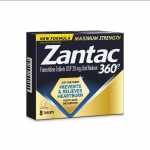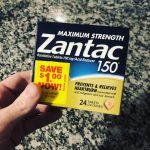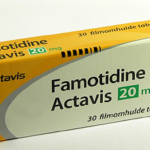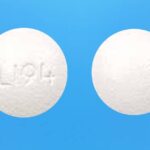Top 5 Zantac (ranitidine) Alternatives Recommended By The FDA

Following April 2020, order by The U.S. Food and Drug Administration that Zantac and all ranitidine containing products be taken off the market because a cancer-causing impurity known as N-Nitrosodimethylamine (NDMA) was found in it, patients in the U. S and many other countries which have issued similar recalls were left scrambling for alternatives.
Zantac has been used to treat and prevent ulcers in the stomach and intestines. It also was used to treat conditions in which the stomach produces too much acid, such as Zollinger-Ellison syndrome.
Zantac was also used to treat gastroesophageal reflux disease (GERD) and other conditions in which acid backs up from the stomach into the esophagus, causing heartburn. GERD is one of the most common gastrointestinal disorders, with a prevalence of approximately 20% of adults in western countries. A systematic review estimated the prevalence of GERD in the United States to be between 18.1% to 27.8%, new estimates confirm these figures.
What Is A Safe Alternative To Zantac (ranitidine)?
Some good Zantac alternatives that have been recommended by the FDA include:
- Nexium (esomeprazole): The “Purple Pill” or Nexium is a brand of esomeprazole magnesium a proton pump inhibitor that decreases the amount of acid produced in the stomach. Nexium is used to treat symptoms of gastroesophageal reflux disease (GERD) and other conditions involving excessive stomach acid such as Zollinger-Ellison syndrome. It is also used to promote the healing of erosive esophagitis (damage to your esophagus caused by stomach acid).
- Pepcid (famotidine): Famotidine, sold under the brand name Pepcid among others, is a histamine-2 blocker that works by decreasing the amount of acid the stomach produces. Famotidine is used to treat and prevent ulcers in the stomach and intestines. It also treats conditions in which the stomach produces too much acid, such as Zollinger-Ellison syndrome. Over-the-counter famotidine is used to prevent and treat heartburn due to acid indigestion and sour stomach caused by eating or drinking certain foods or drinks.
- Prevacid (lansoprazole): Lansoprazole is a proton pump inhibitor. Lansoprazole decreases the amount of acid produced in the stomach. Lansoprazole is used to treat and prevent stomach and intestinal ulcers, erosive esophagitis (damage to the esophagus from stomach acid), and other conditions involving excessive stomach acid such as Zollinger-Ellison syndrome. Over-the-counter lansoprazole (Prevacid OTC) is used to treat frequent heartburn that happens 2 or more days per week. This medicine is not for the immediate relief of heartburn symptoms.
- Prilosec (omeprazole): Omeprazole, sold under the brand names Prilosec and Losec, among others, is a medication used in the treatment of gastroesophageal reflux disease, peptic ulcer disease, and Zollinger–Ellison syndrome. It is also used to prevent upper gastrointestinal bleeding in people who are at high risk.
- Tagamet (cimetidine): Cimetidine belongs to a class of drugs commonly called H2 blockers. It works by reducing the amount of acid in your stomach. This medication is also available without a prescription. It is used to treat occasional heartburn caused by too much acid in the stomach (also called acid indigestion or sour stomach). It is also used to prevent heartburn and acid indigestion caused by certain foods and beverages. Cimetidine is used to treat ulcers of the stomach and intestines and prevent them from coming back after they have healed. This medication is also used to treat certain stomach and throat (esophagus) problems caused by too much stomach acid (e.g., Zollinger-Ellison syndrome, erosive esophagitis) or a backward flow of stomach acid into the esophagus (acid reflux disease/GERD).
Natural Zantac alternatives
Studies have shown that diet plays a major role in controlling acid reflux symptoms and is the first line of therapy used for people with GERD
Foods commonly known to be heartburn triggers cause the esophageal sphincter to relax and delay the digestive process, letting food sit in the stomach longer. The worst culprits are foods that are high in fat, salt, or a spice such as:
- Cheese
- Chili powder and pepper (white, black, cayenne)
- Fast food
- Fatty meats such as bacon and sausage
- Fried food
- Pizza
- Potato chips and other processed snacks
Other foods that can cause the same problem include:
- Carbonated beverages
- Chocolate
- Citrus fruits
- Peppermint
- Tomato-based sauces
Moderation is key since many people may not be able to or want to completely eliminate these foods but try to avoid eating problem foods late in the evening closer to bedtime, so they’re not sitting in your stomach and then coming up your esophagus when you lay down at night. It’s also a good idea to eat small frequent meals instead of bigger, heavier meals and avoid late-night dinners and bedtime snacks.
Foods That Help Prevent Acid Reflux
There are plenty of things you can eat to help prevent acid reflux. Stock your kitchen with foods from these three categories:
High-fiber foods: Fibrous foods make you feel full so you’re less likely to overeat, which may contribute to heartburn. So, load up on healthy fiber from these foods:
- Whole grains such as oatmeal, couscous and brown rice.
- Root vegetables such as sweet potatoes, carrots and beets.
- Green vegetables such as asparagus, broccoli and green beans.
Alkaline foods: Foods fall somewhere along the pH scale (an indicator of acid levels). Those that have a low pH are acidic and more likely to cause reflux. Those with higher pH are alkaline and can help offset strong stomach acid. Alkaline foods include:
- Bananas
- Melons
- Cauliflower
- Fennel
- Nuts
Watery foods: Eating foods that contain a lot of water can dilute and weaken stomach acid. Choose foods such as:
- Broth-based soups
- Celery
- Cucumber
- Herbal tea
- Lettuce
- Watermelon.





